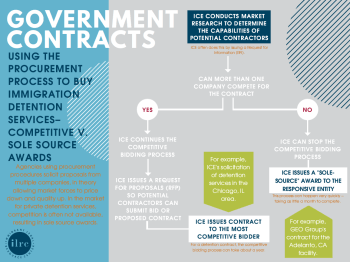
The Department of Homeland Security uses government contracts to acquire immigration detention services. This graphic explains the procurement process, or the competitive bidding process, that government agencies use to purchase services from private contractors and how DHS can use this process to enter into contracts with private prison corporations.

This timeline provides an overview of ICE’s contracts with the City of Adelanto and GEO Group for immigration detention services at the Adelanto ICE Processing Center and how those contracts have evolved over time.
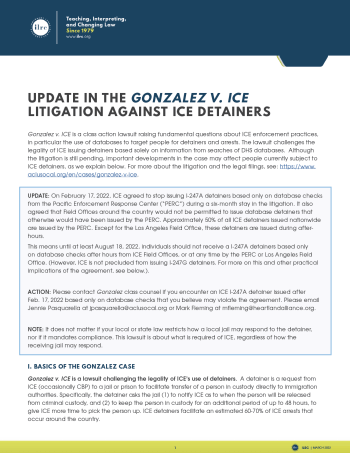
Gonzalez v. ICE is an important class action lawsuit raising fundamental questions about ICE enforcement practices, in particular the use of federal databases to target people for immigration detainers and arrests. This advisory explains the latest developments in the federal courts and how advocates can use these legal theories to defend their clients and communities.

This short resource explains how California laws protect noncitizen youth in the youth justice system from immigration enforcement.
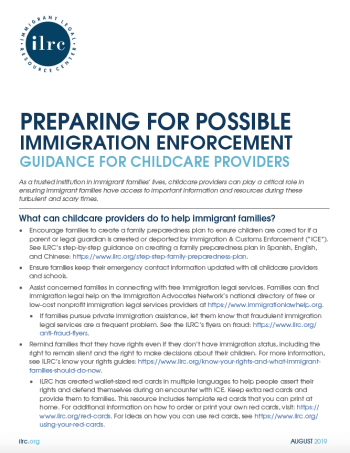
As a trusted institution in immigrant families’ lives, childcare providers can play a critical role in ensuring immigrant families have access to important information and resources during these turbulent and scary times. This resource provides ideas for how childcare providers can support immigrant families.
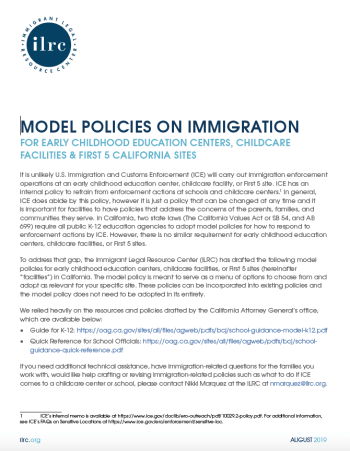
It is unlikely U.S. Immigration and Customs Enforcement (ICE) will carry out immigration enforcement operations at an early childhood education center, childcare facility, or First 5 site. Nonetheless, it is important for facilities to have policies that address the concerns of the parents, families, and communities they serve. Accordingly, the ILRC put together model policies for early childhood education centers, childcare facilities, or First 5 sites in California. The model policies are meant to serve as a menu of options to choose from and adopt as relevant for your specific site. These policies can be incorporated into existing policies and do not need to be adopted in their entirety.
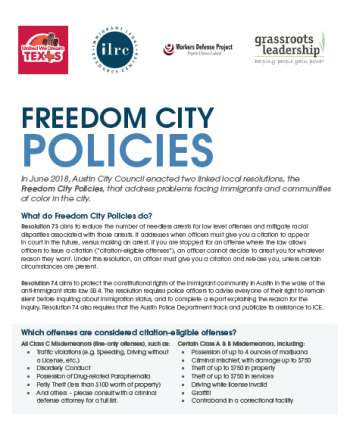
This community resource explains Freedom City Policies in Austin, Texas, an example of organizers, advocates and community members coming together to fight for the decriminalization of immigrants and communities of color. It gives an overview of the policies, why they were enacted, their impact on the community, individuals’ rights under the policies and actions that may be taken if police officers violate those rights. This information is useful for community members and advocates in Austin, Texas.
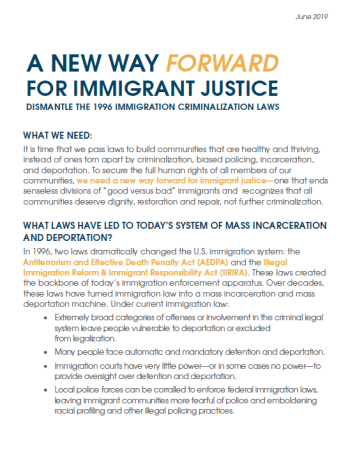
It is time that we pass laws to build communities that are healthy and thriving, instead of ones torn apart by criminalization, biased policing, incarceration, and deportation. To secure the full human rights of all members of our communities, we need a new way forward for immigrant justice—one that ends senseless divisions of “good versus bad” immigrants and recognizes that all communities deserve dignity, restoration and repair, not further criminalization. This one-pager explains A New Way Forward campaign.
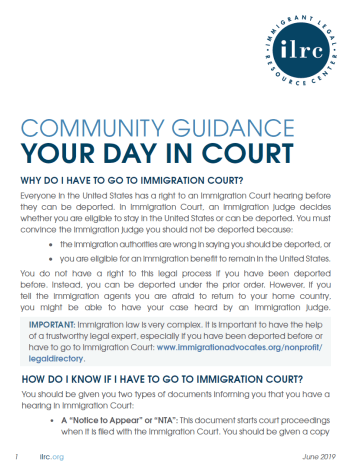
This community resource provides a brief explanation of the Immigration Court experience. It gives an overview of what happens in Immigration Court, how to confirm information about a case in Immigration Court, and what a person in removal proceedings should do if they do not have an attorney to represent them at an upcoming hearing. This information is useful for community members and advocates working with the immigrant community.

Advocates and community members can work together to fight messages of fear and panic by helping community members learn about their rights and how to protect themselves from ICE. The Immigrant Legal Resource Center has created a variety of materials to educate the community and prepare individuals for possible encounters with immigration authorities.